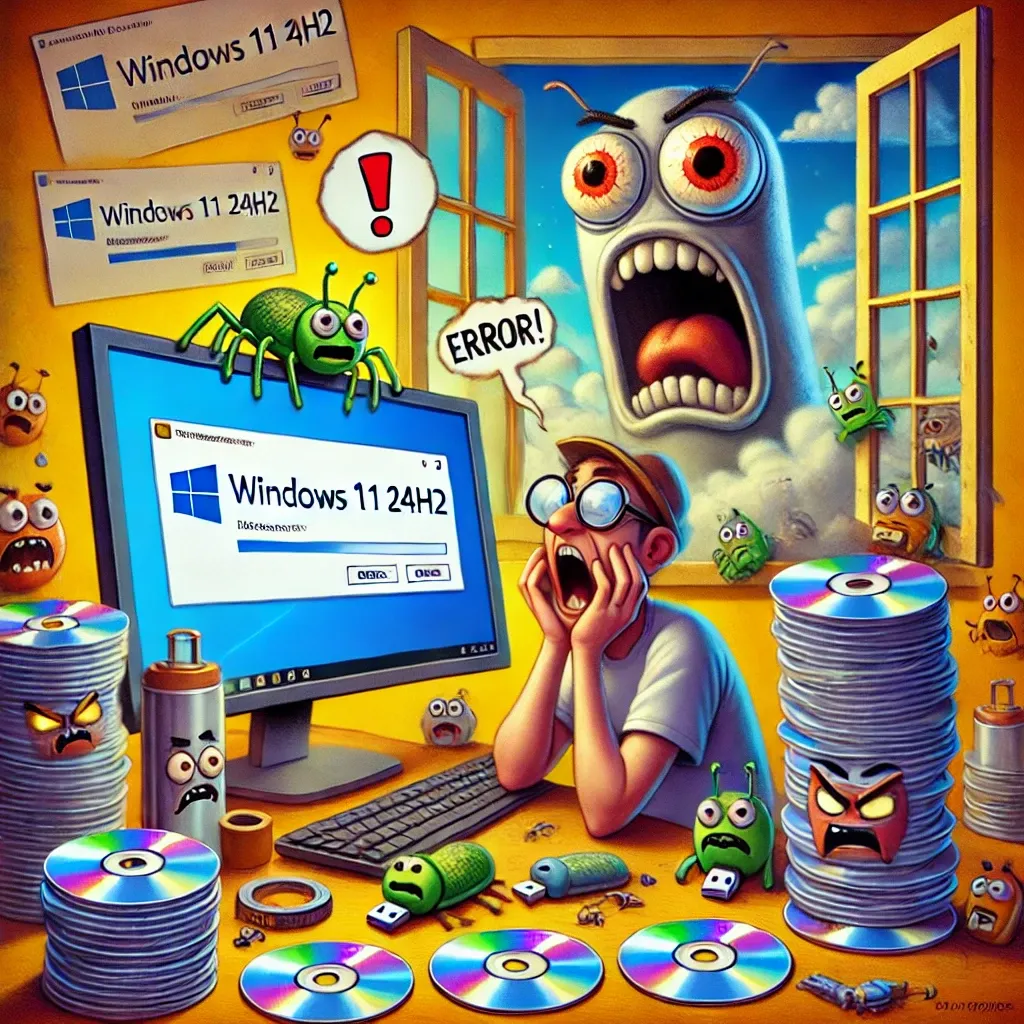The Never-Ending Saga of Windows 11: A Buggy Love Story

Ah, Windows 11. It was supposed to be Microsoft’s sleek, polished answer to all our operating system dreams, the OS equivalent of a luxury sports car. Instead, it’s become the clunky family minivan that stalls at every red light. The latest chapter in its saga? A glitch so delightfully inconvenient it might just make you yearn for the days of floppy disks.
The Bug That Couldn’t Let Go
The drama centers on Windows 11 version 24H2, a version so riddled with quirks it should come with a disclaimer: “For entertainment purposes only.” The problem, as Microsoft sheepishly admitted, affects anyone who installed this version using physical media—those quaint CDs or USB flash drives you probably haven’t thought about since the Obama administration.
If you happened to install Windows 11 24H2 this way between October 8, 2024, and November 12, 2024, congratulations! Your PC now has commitment issues. Specifically, it refuses to download any future security updates. In layman’s terms, your operating system has essentially hit "pause" on its relationship with Microsoft and left you vulnerable to whatever nefarious threats may be lurking in the digital abyss.
Who’s Affected?
Let’s clarify: if you updated your system through Windows Update or the Microsoft Update Catalog, you’re in the clear. But if you went old school with physical media—perhaps because your internet is slower than a dial-up modem in a windstorm—you’re now the proud owner of a gloriously broken OS. The kind that shrugs its virtual shoulders and says, “Updates? Nah, I’m good.”
Microsoft’s explanation doesn’t inspire much confidence. They acknowledge the problem and gently suggest that affected users “be patient” while they work on a fix. This is tech-speak for “We have no idea how to fix this yet, but we’re hoping no one notices.”
The Fixes That Fix… and Break
Of course, Microsoft has tried to patch things up, literally. Since October, they’ve rolled out three bug fixes. The first one fixed some problems but introduced new ones, which is sort of like repairing a leaky faucet and accidentally flooding the basement. The second patch resolved most, but not all, of the remaining issues. And the third, rolled out in December, fixed a glitch with USB-connected scanners while valiantly ignoring everything else.
At this rate, the 24H2 saga might become a modern fable. Future generations will gather around glowing screens to hear tales of the update that just couldn’t get it together. “Tell us about the bug-riddled OS,” they’ll ask, wide-eyed. And we’ll sigh and recount the time an operating system couldn’t even update itself properly.
What’s Next?
If you’re one of the unlucky souls stuck with this glitch, Microsoft has a partial solution: download the latest installation media from their website. This version includes the December update, which mercifully lacks the aforementioned bug. If you’re already trapped in update limbo, however, you’ll need to wait for Microsoft to conjure up a proper fix—or perhaps consider adopting Linux out of sheer frustration.
Meanwhile, the rest of us can only marvel at the sheer absurdity of it all. Windows 11 24H2 is the digital equivalent of a sitcom character perpetually caught in awkward situations. It stumbles from one bug to the next, leaving chaos in its wake while Microsoft scrambles to clean up the mess.
To Update or Not to Update?
Until Windows 11 24H2 becomes less like a soap opera and more like an actual operating system, my advice is simple: steer clear. Let those brave early adopters continue to beta-test life for the rest of us. In the meantime, stick with an older, more stable version of Windows—or learn to live without USB-connected scanners and quirky security updates. Who knows? By the time Microsoft sorts this out, we might already be talking about Windows 12.
In the end, the moral of the story is clear: never underestimate the ability of a cutting-edge operating system to completely derail your day. Or your month. Or, in this case, your entire digital life.
Comments ()